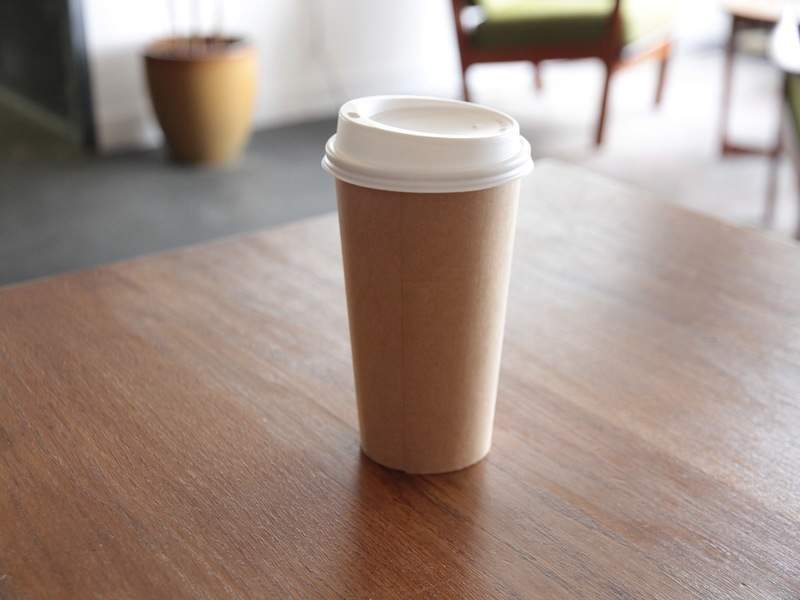

UK’s Biome Bioplastics unveils bio-based plastics range for cups and lids
UK-based Biome Bioplastics developed a new range of bio-based plastic materials for use in the manufacture of disposable cups, lids, and coffee pods.

Discover B2B Marketing That Performs
Combine business intelligence and editorial excellence to reach engaged professionals across 36 leading media platforms.
Made from plant-based sources and tree by-products, the bioplastics seek to reduce waste and provide a more sustainable option to the retailers and packaging manufacturers, even under heat and other stresses.
Biome Bioplastics CEO Paul Mines said: “For such a simple product, disposing of a single coffee cup is a very complex problem.
US’s Silgan acquires WestRock’s dispensing systems business for $1.025bn
US-based rigid packaging company Silgan acquired WestRock’s dispensing systems business for $1.025bn.
The value of the deal is subject to adjustments outlined in the purchase agreement announced in January.

US Tariffs are shifting - will you react or anticipate?
Don’t let policy changes catch you off guard. Stay proactive with real-time data and expert analysis.
By GlobalDataThe purchase price for the deal was funded using loan borrowings under Silgan’s senior secured credit facility, including a $800m delayed draw term loan.
Sonoco unveils new clear barrier flexible packaging portfolio
US-based Sonoco introduced a new clear barrier flexible packaging solution, ClearGuard.
Offering improved barrier properties for product protection, ClearGuard can be used in place of aluminium foil or metalized films.
Suitable for packing meat snacks, nuts, trail mixes, snack and nutrition bars, cookies and crackers, the solution also allows consumers to see the product inside its packaging.
Canadian researchers develop biodegradable food packaging from irradiated nanofibres

Scientists at Research Laboratories in Sciences Applied to Food (RESALA) and Canadian Irradiation Centre (CIC) have developed biodegradable, ‘active’ packaging materials that can be used in food packaging applications.
For developing the materials, researchers have combined raw renewable materials, such as starch or proteins with nanocellulose, which is a natural polymer that contains nano-sized cellulose fibres, and then irradiated them.
Radiation technology was used to produce the materials, which feature improved durability, biodegradability and water resistance properties than the conventional materials.
Tesco, Linpac and Hilton Food Group jointly maximise plastic fresh food packaging recyclability
UK-based supermarket chain Tesco partnered with Linpac and Hilton Food Group to maximise the recyclability potential of its plastic fresh food packaging solutions.
As part of the collaboration, the three companies worked together to bring Linpac’s Rfresh Elite plastic pack for use in meat and poultry packaging applications.
Featuring more than 95% of food-safe recycled content recovered from plastic (PET) water bottles from household waste, the fully recyclable and lightweight solution is currently available across Tesco shelves.
UPM Raflatac partners with wine industry leaders to promote sustainability
Finland-based self-adhesive label materials producer UPM Raflatac collaborated with wine industry leaders, including Italian wine producer Cielo e Terra and natural cork supplier Amorim Cork, on the issue of sustainability.
As part of the collaboration, the partnership will promote sustainability in the wine industry at the four-day long 'Freschello for Forests' event at Vinitaly 2017, which began on 9 April in Italy.
A Freschello wine bottle, which includes a Forest Stewardship Council (FSC) certified label, will be launched at the Cielo e Terra stand being put at the event.
Metsä Board begins operations at new extrusion coating line in Sweden

Metsä Board started operations at a new extrusion coating line situated at its Husum mill site in Sweden.
The €38m line has an annual capacity to produce around 100,000t of polyethylene (PE) coated paperboards, which can be used as an alternative to plastics for frozen food and take-away packaging, including cups and plates.
The first orders currently being produced by the new line will cater to the global foodservice market.
Addivant’s Weston 705 receives FDA approval for use in infant food and breast milk plastic packaging
Addivant secured an approval from the US Food and Drug Administration (FDA) for using its nonylphenol-free stabiliser, Weston 705, in infant food and breast milk plastic packaging applications.
The approval enables the use of Weston 705 at levels of up to 2,000ppm in various types of polymers for repeat use articles intended for infant formula and breast milk.
The new plastic antioxidant can also be used in polymers that are developed for use with powdered infant formula.
Marbach launches new reverse cutting technology for packaging sector
Marbach Group introduced its new reverse cutting technology for use in various paperboard and corrugated board packaging applications.
The new height-adjustable anvil included in the technology will allow customers to adjust anvil height of their cutting-die machines by themselves.
Reverse cutting technology is a possibility to offer paperboard or corrugated board packaging with a tear-off feature.
Amcor Rigid Plastics opens new PET bottle manufacturing plant in Texas, US

Australia’s Amcor Rigid Plastics opened a new on-site polyethylene terephthalate (PET) bottle manufacturing plant at Campbell Soup’s site in Paris, Texas, US.
Developed with a $7m fund, the new plant will be able to produce around 50 million hot-fill PET bottles annually.
An area of 6,000ft² at the Paris manufacturing facility was revamped to house the new facility that will manufacture 46oz and 64oz PET containers for Campbell’s V8 brand of vegetable juice products.





